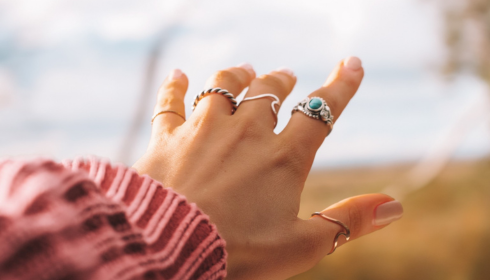In recent years, more couples are turning to environmentally friendly and socially responsible choices when selecting their engagement rings. One of the most notable developments in this area is the increasing popularity of sapphire engagement rings uk shoppers are now choosing. These rings not only offer a stunning alternative to traditional diamond styles but also reflect a growing awareness of ethical sourcing and sustainability. With consumers seeking transparency and meaning in their purchases, the demand for responsibly crafted engagement rings is reshaping the jewelry market.
Sapphire engagement rings have become particularly appealing due to their timeless beauty, durability, and symbolic significance. Available in a range of colors but most commonly known for their striking deep blue hues, sapphires are a favorite for those wanting a ring that feels unique and personal. Beyond aesthetics, however, many customers are drawn to sapphires because they often come from sources with clearer ethical standards compared to traditional diamond mining. Ethical sourcing practices for sapphires, especially when certified or mined in regions with strong labor laws, give peace of mind to couples wanting to make a responsible choice.
The shift toward sustainable engagement rings is influenced by several key factors. One major driver is increased consumer awareness of the environmental and social impact of gemstone and precious metal mining. Traditional mining practices can contribute to habitat destruction, water pollution, and human rights abuses. In contrast, sustainable jewelers are focusing on alternatives such as recycled metals, lab-grown diamonds, and conflict-free gemstones. This ensures that the final piece not only looks beautiful but also supports fair treatment of workers and environmental preservation.
Lab-grown diamonds, for example, have gained popularity as a sustainable option. These stones are chemically and physically identical to natural diamonds but are created in controlled laboratory settings. This process drastically reduces the environmental footprint compared to traditional mining. Combined with responsibly sourced sapphires, lab-grown stones offer endless possibilities for ethical and stylish engagement rings.
Artisan jewelers and ethical brands are also placing greater emphasis on traceability. Being able to track a gemstone from its origin to the final product allows customers to make informed decisions. Transparency about sourcing, labor conditions, and manufacturing methods is becoming a standard expectation among modern buyers. This demand for accountability is leading more jewelry companies to adopt third-party certifications and public sourcing policies.
In addition to their ethical advantages, sustainable engagement rings often tell a more meaningful story. For many couples, choosing an ethically made ring is a reflection of shared values and a commitment to making thoughtful choices. Whether it’s opting for vintage rings that carry history, using recycled materials to reduce waste, or selecting lab-created stones that minimize environmental impact, the process of selecting a ring becomes more than a transaction it becomes a statement of intent. For more helpful blog posts like this one, visit the rest of our site, MyusaWire.
Furthermore, the UK market for ethical jewelry is rapidly expanding. Consumers are actively seeking out sapphire engagement rings uk based retailers offer, especially those that prioritize ethical craftsmanship and sustainability. This growing demand has encouraged many jewelers to reevaluate their practices and embrace more eco-friendly approaches. As sustainability becomes a central theme in wedding planning, ethical rings are naturally becoming the go-to choice for conscious couples.
Ultimately, the growing trend of ethical and sustainable engagement rings signals a profound shift in consumer behavior. Couples today are not only looking for beauty and quality in their rings but also integrity and responsibility. As the jewelry industry continues to evolve, it’s clear that sustainability is no longer a niche preference-it’s becoming the new standard.

